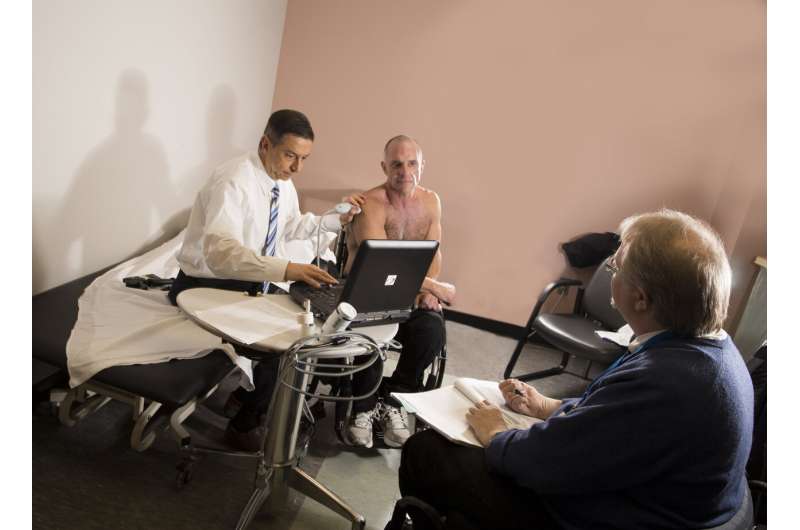Promising treatment for shoulder pain in wheelchair users with spinal cord injury

A New Jersey team of researchers has reported the successful, long-term relief of chronic refractory shoulder pain in a wheelchair user with spinal cord injury (SCI) following a single injection of autologous, micro-fragmented adipose tissue into the affected shoulder joint. The article, "Autologous micro-fragmented adipose tissue as a treatment for chronic shoulder pain in a wheelchair using individual with spinal cord injury: a case report" was epublished ahead of print on May 13, 2019 by Spinal Cord Series and Cases. This is the first reported use of this intervention for shoulder pain in an individual with spinal cord injury who has failed to improve with conservative care, such as physical therapy and pharmacological agents.
The authors are Chris Cherian, MD, of Rutgers New Jersey Medical School, Gerard Malanga, MD, of the New Jersey Regenerative Institute and Kessler Institute for Rehabilitation, Trevor Dyson-Hudson, MD, and Nathan Hogaboom, Ph.D., of Kessler Foundation, and Michael A. Pollack, MD, of Montclair Radiology.
Courtesy of the publisher, this Editors' Choice article is Open Access through June 30.
Chronic shoulder pain is a common cause of functional decline among wheelchair users with SCI who rely on their upper limbs for mobility and everyday activities of daily living. When pain persists despite conservative management, current options for individuals with SCI have significant drawbacks. Corticosteroid injections offer only temporary relief and surgical interventions often require prolonged periods of recovery and have poor outcomes, which can add to the burden of disability.
This individual, a 54-year-old man with a ten-year history of T10 complete SCI, had a history of chronic shoulder pain that was unresponsive to conservative treatment, including repeated corticosteroid injections that provided only short-term pain relief of 3 months. Ultrasound and MRI examinations of the shoulder revealed a rotator cuff tear and degenerative changes of the acromioclavicular joint. The participant's own fat was harvested and processed using the Lipogems system to yield a sample of autologous, micro-fragmented adipose tissue that was injected into the shoulder joint under ultrasound guidance. He experienced relief of pain and improvement in performing activities of daily living. At 12-month follow-up, he remained pain free and maintained his functional improvements, with 50% healing of the rotator cuff tear on MRI.
Treatment of intractable shoulder pain with autologous micro-fragmented adipose tissue warrants further investigation as a potential alternative to surgery in wheelchair users with spinal cord injury.
This report is part of a pilot study at Kessler Foundation funded by the Derfner Foundation. The team also recently received a grant from the New Jersey Commission on Spinal Cord Research to conduct a randomized, controlled trial to investigate the safety and efficacy of micro-fragmented adipose tissue for refractory shoulder pain in wheelchair users with SCI.
More information: Chris Cherian et al, Autologous, micro-fragmented adipose tissue as a treatment for chronic shoulder pain in a wheelchair using individual with spinal cord injury: a case report, Spinal Cord Series and Cases (2019). DOI: 10.1038/s41394-019-0186-8


















